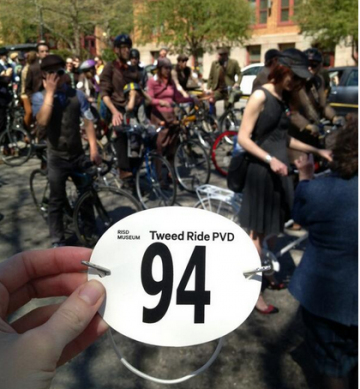
Providence regularly lands on the lists of top hipster cities and top hipster colleges for its cool factor, having earned plaudits from Travel and Leisure to Buzzfeed for live music, coffee shops, and hip culture.
But can hipsters save Providence?
In 2013, when Providence took the number four slot on Travel and Leisure's list of America's Top Cities for Hipsters, the publication stated of Rhode Island's capital city, "On the west side, you can order vegan cuisine at The Grange, hear concerts at the Columbus Theatre (with a clever 1492 seats), or browse the vintage fashions, ceramic poodles, and kitschy kitchenware at Rocket to Mars."
Aaron Renn, urban analyst and senior fellow at the Manhattan Institute, offered his perspective on the "hipster impact" in Providence -- and nationally.
"There are not enough "hipsters" to plausibly resurrect the urban economies of America," said Renn. "If you're in downtown Providence, in the proximity to its center, you can live an eminently hipster lifestyle, and ask yourself, 'Where would Providence be without it?' And it would probably not be as great."
"Is that the solution to the jobs issue on the south side of Providence? No. [The hipster economy] has its positives, but it's something that's happening more now everywhere," said Renn. "I was just in Indianapolis. There were plenty of beards, plaid shirts, and locally sourced food there."
Part of Economy
"It's a great thing to be considered a livable city with a vibrant nightlife and art scene," said Providence City Council President Luis Aponte. "Our goal is to have a city that draws interest and investment at all levels. The artists and designers need to be part of the city -- but so do blue collar and white collar workers as well."
Renn noted that in his view, Providence's relatively rooted hipster culture put it in a different position than newer hipster destinations.
"People are going to come and go, that's the nature of a college town, but the people that I know that decided to stay in Providence did so for relatively concrete reasons," said Renn. "They're 'sticky'-- they didn't seem like the people to flee to Detroit because it's the next hip city. Many people have reasons that they picked Providence that aren't applicable to a Detroit. Having New England roots, for instance, or wanting to be close to New York, Boston, but having a lower cost of living."
"I'm not anticipating there's going to be any mass exodus of the creative class, that's a positive note -- the people that are in Providence are loyal, but if you don't have a job, that's a big problem," added Renn.
Renn noted some advantages that emerging hipster markets have that Providence does not.
"Take Detroit and its collapse," said Renn. "The ability for the government to function is barely coming around. That's allowed people to take chances, to know the building inspector isn't necessarily going to bother you. New England is so heavily regulated, it's a daunting process to come in and do something. I think the people who move to Providence have a reason, they didn't just up and move because they heard it was cool."
Urban Growth Factor
"I think Providence has fallen flat compared to hipster cities such as Portland [Oregon]," said Renn. "There's more of an economy build in say Portland [Oregon] for small business. For a lot of people, to go to Providence, you have to bring money from somewhere else, there's not a ton of jobs. For the most part, if you're a younger, creative person, there's simply a limited number of positions in Providence right now. You've got to figure out how to make money, and that's namely exporting services and goods, and that brings some wealth in."
City Council President Aponte noted that the firm that the City Council recently hired to do cluster analysis identified that at least a fifth of Providence's workforce are contract workers.
"What they found is that 21% of folks earning in Providence are 1099 workers," said Aponte of the classification of contract workers. "That's high as compared to other parts of the region and the country as a whole. If people are disconnected to an employer, and selling their services as consultants, how much spin off does that create? We have an older housing stock, which is attractive to hipster types, and having them here means something for our tax base. We need to see where the jobs are though, and enable growth there."
Renn spoke to where he saw Providence could succeed.

"Rhode Island has had some wins in the past, we just need a lot more. On a whole, if I were Providence, I'd feel pretty good about the number of people in that creative class who have an affinity for the city and aren't likely to leave," said Renn. "The industries that are booming, however, are ones where Rhode Island isn't necessarily well placed. Everybody and their brother is chasing biotech. Boston is booming, and Rhode Island just doesn't have the assets. There are only so many coders -- if you're that good, you're going to another city."
"Where Providence and Rhode Island has the skills is in design," said Renn. "The question is how do you parlay that beyond a boutique firm. You can argue Alex and Ani did it, that it's effectively a design firm that leverages the state's jewelry expertise. That's just one example. Providence needs lots of people starting businesses. Very few will become successful, and usually it takes on average 7 to 10 years to make it. But to do so you have to build it."
This piece first appeared at GoLocalProv.com.
Kate Nagle is a writer and editor at GolocalProv. Find her on Twitter @naglekate78.












